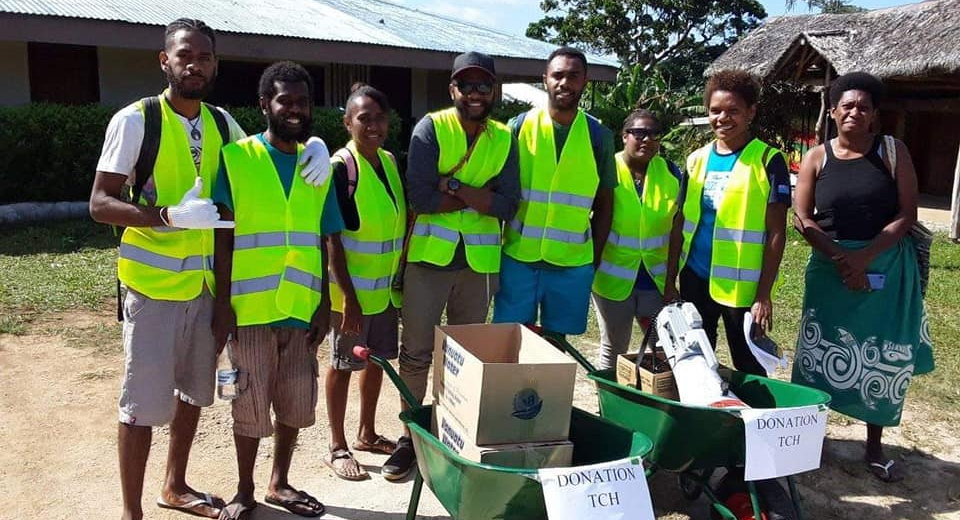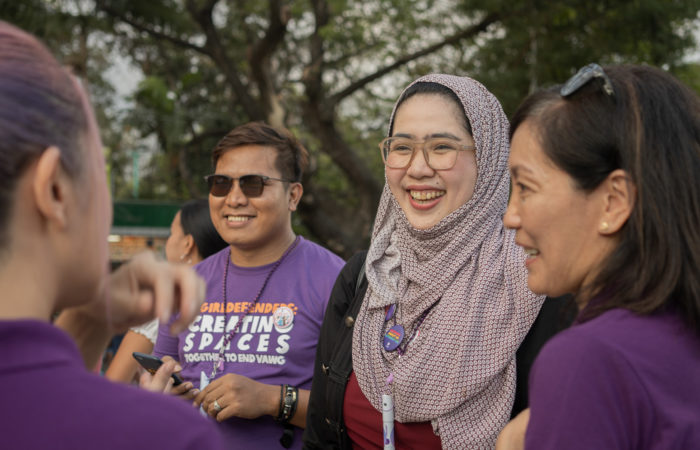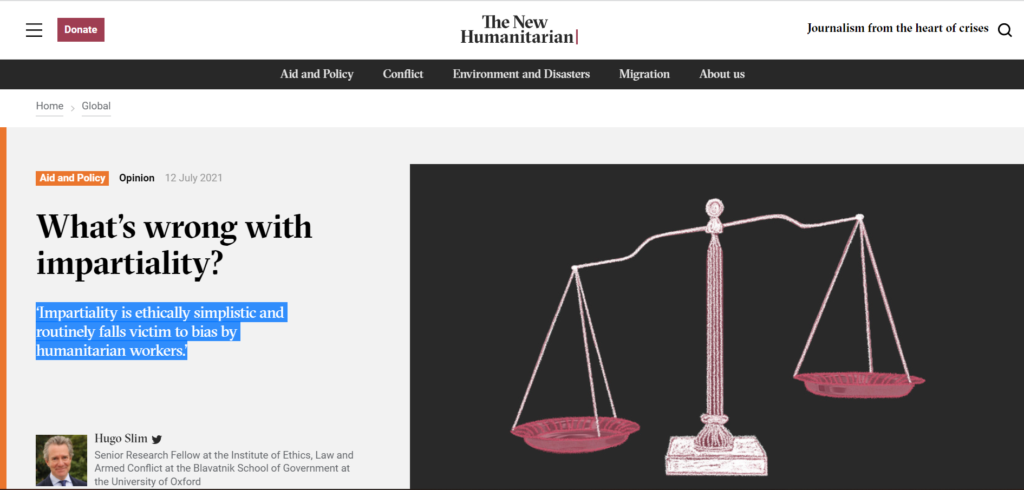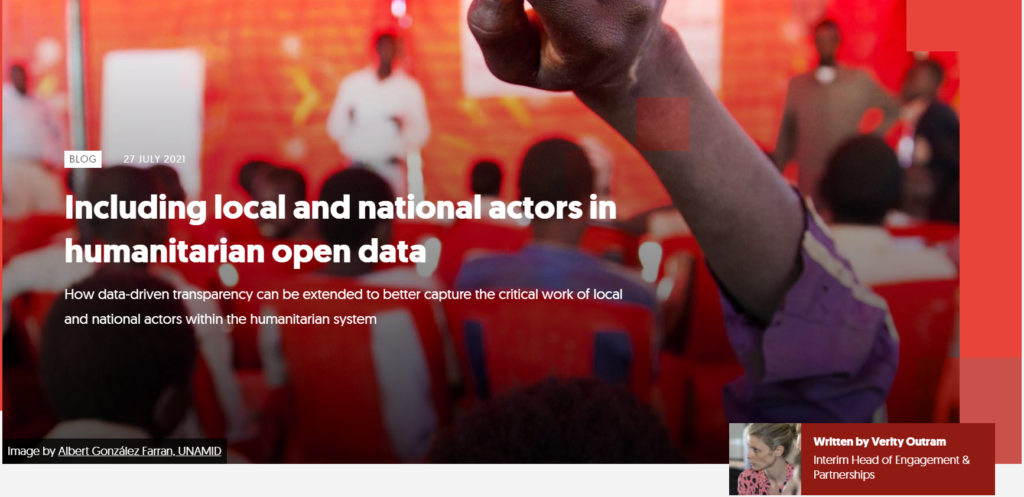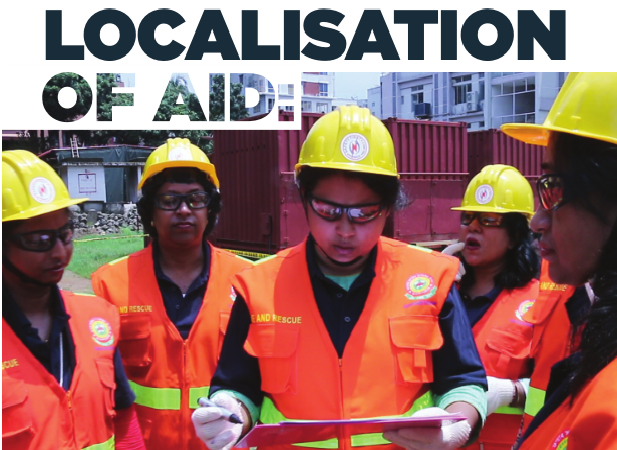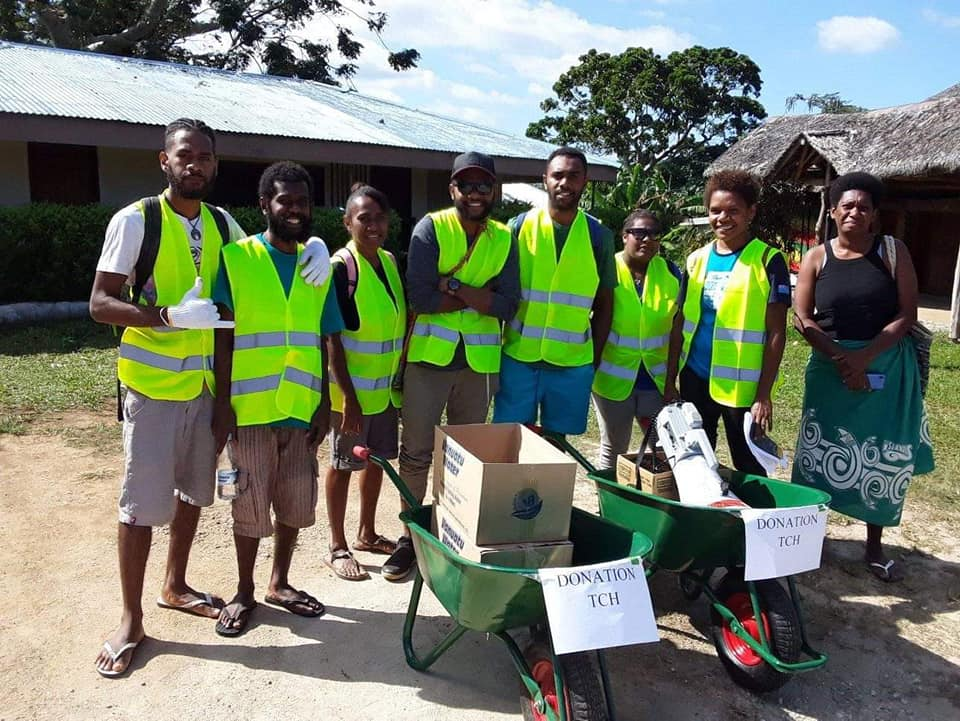Thought-provoking argumentation about Impartiality; five to read of July 2021
This summer, I selected four articles around localization, challenging the more paper-based discussion around localization from the grand bargain. Can INGOs go national without recolonizing aid? The inclusion of local and national actors in our data. How can we make sure Covid-driven localization in support endures after the pandemic? Concluding with a case study from Vanuatu, localization insights from the response to a cyclone. The fifth article in between the localization articles is a thought-provoking and challenging argumentation from Hugo Slim about what is being wrong with impartiality? Or is it me that finds it thought-provoking? Being raised as a humanitarian with the core humanitarian principles?
Oxfam has been on a ten-year journey to transform itself into an organisation more reflective of the world in which it works and more diverse in its leadership. In this article, Oxfam staff and local partners share some of their experiences and thoughts on supporting local humanitarian leadership while opening new affiliates in the Global South.
When Oxfam set out to address imbalances of power and money in its confederation, it reimagined itself. Its traditional configuration involved a small number of interconnected non-governmental organisations (NGOs), known at Oxfam as affiliates, in the Global North; it envisioned a diversified network of NGOs across the world working interdependently toward a common vision and mission. Now, Oxfam has affiliates in India, Mexico, Brazil, Turkey, Colombia and South Africa, with more on the horizon. Oxfam is not alone. Many other humanitarian and development international NGOs (INGOs) have taken a similar approach.
Read the full article here.
Hugo Slim wrote a thoughtful analysis regarding the principle of impartiality. ‘Impartiality is ethically simplistic and routinely falls victim to bias by humanitarian workers.’
The principle of impartiality is one of humanitarianism’s most important ethical commitments and routinely pronounced by humanitarians as if it were crystal clear and self-evidently right. But is it? The principle, according to the Red Cross, dictates that humanitarians should “make no discrimination as to nationality, race, religious beliefs, class or political opinion and endeavour only to relieve suffering, giving priority to the most urgent cases of distress”. Impartiality defines fairness in humanitarian acts and is widely assumed to be a rock solid measure of good humanitarian aid.
At first glance, this seems simple and right. Read Hugo Slims contribution in the New Humanitarian online here.
Local and national actors are critical to an effective humanitarian response, hence the strategic prioritisation of localisation in the Grand Bargain 2.0. Yet these actors remain largely invisible in open data on humanitarian activities and financing.
To date, global humanitarian transparency efforts, including the commitments made through the original Grand Bargain, have primarily focused on data and decision-making from global donors, agencies and international non-governmental organisations. For the activities of local and national actors to become more visible in humanitarian data and for open data to meet their needs, it is imperative that data-driven transparency efforts are now extended to include them. Their inclusion is a vital element of the power shift within the humanitarian system – which, despite being long advocated for, is still overdue.
Lots of people are hailing a surge in pandemic-driven ‘localization’ as one of the silver linings of the current grimscape. The argument goes that lockdowns have suspended aid’s standard ‘white men in shorts’ operating model, allowing local organizations to expand into the space, run their own responses, (eg to humanitarian emergencies) and generally take more control of the aid process – something long promised but seldom delivered. This post captures that process in the Pacific islands (some excellent further Pacific research by the Humanitarian Advisory Group here).
But will it last? Is this a localization blip, after which things return to business as usual, or a tipping point to something better? And what could be done now to ensure that it is the latter?
Touted as a solution to ineffective humanitarian aid, the localisation agenda has gained momentum since it was coined in 2016 with the expression “as local as possible, and international when necessary”. The importance of local actors in development is not a new idea, but localisation destabilises international NGOs’ (INGOs) modus operandi by requiring they assume a backstage role in emergency response. Leadership is transferred to local responders who, it is argued, are best suited for that role. Enthusiasm surrounding the localisation agenda and its roadmap, the Grand Bargain, is wavering as critiques emerge from the field and academia alike. The international community has failed to meet some fundamental localisation targets, notably the ratio of direct funding, but also the transference of leadership to local actors.
Morgane Rosier and Marie-Claude Savard analyse Vanuatu’s response to tropical cyclone Harold, which struck at a time when several factors were united to support localisation, and identify elements that hindered the effectiveness of the local response.
